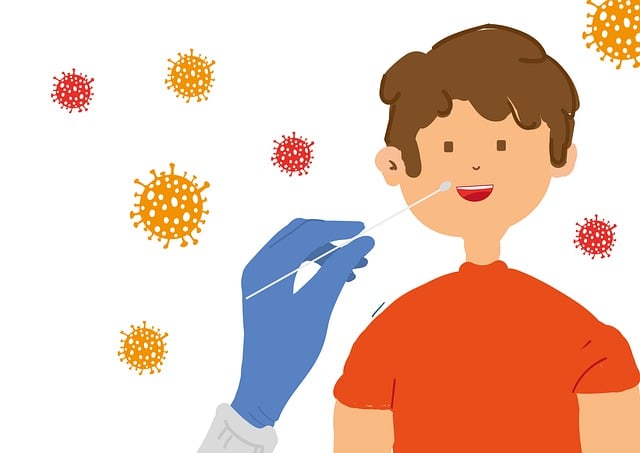Understanding male hormone levels, especially testosterone, is crucial for diagnosing and treating men's reproductive issues. The UK Testosterone Blood Test is a non-invasive procedure that measures hormone levels via a simple blood draw, helping to identify conditions like hypogonadism or polycystic ovary syndrome (PCOS). Healthcare professionals interpret results in conjunction with symptoms and medical history, guiding treatment options such as Hormone Replacement Therapy (HRT) or lifestyle changes. Regular monitoring through follow-up tests ensures effective treatment adjustments.
“Unraveling male hormone secrets: Navigating Reproductive Issues with the UK Testosterone Blood Test. This comprehensive guide delves into the intricate world of male endocrinology, focusing on testosterone as a key player in reproductive health. We explore how understanding hormone levels can empower individuals to take charge of their fertility. From deciphering test results to exploring treatment options, this article provides insights for those seeking answers about their reproductive journey, especially when considering the UK Testosterone Blood Test.”
- Understanding Male Hormone Levels and Their Role in Reproduction
- The UK Testosterone Blood Test: How It Works and When to Consider It
- Interpreting Results and Next Steps for Reproductive Health Care
Understanding Male Hormone Levels and Their Role in Reproduction
Understanding male hormone levels is crucial for diagnosing and treating reproductive issues in men. Testosterone, often referred to as the ‘male hormone’, plays a pivotal role in various physiological processes, including sperm production, libido, muscle mass development, bone density maintenance, and overall sexual health. In the UK, a testosterone blood test is a common diagnostic tool used to assess male hormonal health. This simple procedure involves taking a sample of blood to measure the amount of testosterone present.
Abnormalities in testosterone levels can lead to a range of reproductive challenges. Low testosterone (hypogonadism) may result in decreased sperm production, erectile dysfunction, and reduced libido, while high levels could indicate conditions like polycystic ovary syndrome (PCOS) or tumours. By analysing these hormone levels, healthcare professionals can identify underlying issues and offer appropriate treatment options to address male fertility problems and overall reproductive health concerns.
The UK Testosterone Blood Test: How It Works and When to Consider It
In the UK, the Testosterone Blood Test is a crucial diagnostic tool for evaluating male reproductive health and identifying potential issues related to hormone levels. This simple yet powerful test measures the amount of testosterone, the primary male sex hormone, in the blood. It involves taking a small sample of blood, usually from a vein in the arm, ensuring a quick and relatively painless process. The sample is then analysed in a laboratory using advanced techniques to provide accurate results.
Consider undergoing this test if you experience symptoms like decreased libido, erectile dysfunction, muscle weakness, or unusual fatigue. It can also be recommended for men with suspected androgen deficiency or those planning treatments like testosterone replacement therapy (TRT). Early diagnosis through the UK Testosterone Blood Test is essential as it enables timely intervention and potential improvements in quality of life for individuals facing reproductive challenges.
Interpreting Results and Next Steps for Reproductive Health Care
When interpreting the results of a UK Testosterone Blood Test, healthcare professionals consider both the numerical values and the context of the individual’s symptoms and medical history. Normal testosterone levels vary between individuals based on age, with significantly lower or higher values indicating potential issues. If testosterone levels fall outside the reference range, further evaluation is required to understand the cause, which could be related to various factors such as age, lifestyle, or underlying health conditions.
Upon identifying abnormal hormone levels, the next steps in reproductive healthcare often involve targeted treatments and regular monitoring. This may include hormonal replacement therapy (HRT) for hypogonadism, lifestyle interventions to improve fitness and diet for overall testosterone regulation, or addressing specific conditions like thyroid disorders that can affect hormone production. Regular follow-up tests are crucial to assess treatment effectiveness and make necessary adjustments.
Understanding male hormone levels is a vital step in diagnosing reproductive issues. The UK Testosterone Blood Test offers a non-invasive method to assess these levels, providing valuable insights for those experiencing fertility problems. By interpreting the results, individuals can take informed steps towards improved reproductive health and seek appropriate care. This test serves as a powerful tool in navigating the complexities of male hormonal health.
